Signs You Need AC Service: When to Call in the Experts
Increased Energy Bills
Increased energy bills can be a frustrating and costly issue for homeowners. If you find yourself wondering why your energy costs have skyrocketed, it may be time to call in the experts for AC service. A malfunctioning or poorly maintained air conditioning system can cause your energy bills to soar.
When your AC system is not working efficiently, it has to work harder to cool your home, resulting in increased energy consumption. This means that even if you haven't changed your usage habits, you may still notice a significant increase in your monthly electricity bill.
There are several reasons why your AC system might be causing higher energy bills. It could be due to a clogged air filter, which restricts airflow and forces the system to work harder. Leaky ductwork can also contribute to increased energy consumption as the cool air escapes before reaching its intended destination.
One often overlooked factor is improper insulation. If your home isn't properly insulated, hot air from outside can seep into your living spaces, forcing your AC system to work overtime to maintain a comfortable temperature.
To avoid these issues and lower your energy bills, it's important to schedule regular maintenance for your AC system. A professional technician can clean or replace dirty filters, seal any leaks in the ductwork, and ensure that your home is properly insulated.
Pro Tip: Consider investing in a programmable thermostat. This allows you to set different temperature settings for different times of the day, optimizing energy usage and reducing unnecessary cooling when you're not at home.
By addressing these issues and staying proactive with AC service, you can save money on your energy bills while enjoying a more comfortable and efficient cooling system. Don't let increased energy bills leave you hot under the collar – call in the experts today!
Poor Airflow
Are you feeling hot and bothered because your air conditioner is not delivering the cool air you desire? If so, you may be experiencing poor airflow in your home. This can be a frustrating problem, but fortunately, there are several potential causes and solutions to explore.
- Clogged Air Filters: One common cause of poor airflow is dirty air filters. Over time, filters can become clogged with dust and debris, restricting the flow of air. Regularly changing or cleaning your filters can improve airflow and help maintain a comfortable indoor environment.
- Ductwork Issues: Another possible culprit behind poor airflow issues with your ductwork. Leaks bends, or blockages in the ducts can hinder the movement of air throughout your home. Having a professional inspect and repair any ductwork problems can significantly improve airflow efficiency.
- Malfunctioning Blower Fan: A malfunctioning blower fan may also be to blame for inadequate airflow. The fan plays a crucial role in pushing cooled air through your HVAC system and into your living spaces. If it's not functioning properly, it can lead to reduced airflow. Seeking expert assistance to repair or replace the blower fan can resolve this issue.
To ensure optimal performance of your AC system and avoid poor airflow issues, it's essential to keep up with regular maintenance. Schedule annual tune-ups with a reputable HVAC technician to clean and inspect all components thoroughly. Remember that having good airflow is vital for achieving comfort in your home during the hot summer months. By addressing any underlying causes and maintaining your AC system regularly, you can enjoy consistent coolness throughout every corner of your house without any hindrance or discomfort. If you're experiencing poor airflow in your home, consider these suggestions:
- Check and change/clean air filters regularly (at least once every three months), ensuring unrestricted airflow.
- Inspect your ductwork for leaks, bends, or blockages. Have any issues professionally repaired to promote efficient airflow.
- If you suspect a malfunctioning blower fan, contact an HVAC expert to inspect and resolve the problem promptly.
By implementing these suggestions, you can enhance airflow and ensure that your air conditioner operates at its full potential. Don't let poor airflow leave you sweating and uncomfortable when professional help is just a phone call away.
Inconsistent Temperature
- Thermostat Malfunction: One of the reasons behind inconsistent temperature could be a malfunctioning thermostat. If your thermostat is not accurately measuring the temperature or is not communicating properly with the AC system, it can result in uneven cooling or heating.
- Ductwork Problems: Another culprit could be issues with your ductwork. Leaks, improper insulation, or disconnected ducts can cause air to escape before reaching its intended destination. This can lead to inconsistent temperatures throughout your home.
- Dirty Air Filters: Neglected air filters can restrict airflow and prevent proper distribution of cooled or heated air. As a result, some areas may receive less airflow than others, resulting in varying temperatures.
If you notice inconsistent temperatures in your home despite adjusting the thermostat settings, it's time to call in the experts. Professional AC service technicians have the expertise to diagnose and fix any issues causing temperature inconsistencies. They will thoroughly inspect your system, including the thermostat, ductwork, and air filters, to identify the root cause of the problem.
It's important to address inconsistent temperature as it not only affects comfort but also puts undue stress on your AC system. By getting professional help, you can ensure that your HVAC system operates efficiently and provides consistent comfort throughout your home.
Strange Sounds
Air conditioners are supposed to run smoothly and quietly, but strange sounds can be a sign of a problem. If you hear banging, rattling, or buzzing noises coming from your AC unit, it's time to call in the experts. These sounds may indicate loose or broken components that need immediate attention. Ignoring these sounds could lead to further damage and costly repairs.
A banging noise can suggest a problem with the compressor or motor, while rattling noises may be caused by loose parts or debris trapped in the unit. A buzzing sound might indicate an electrical issue that requires professional troubleshooting. It's important not to ignore these unusual sounds as they can be early warning signs of larger issues.
In addition to these common strange sounds, there are also some unique details you should pay attention to. For example, if you hear a high-pitched screeching sound, it could mean that the fan belt is worn out and needs replacement. Similarly, a hissing noise could be due to a refrigerant leak, which is a serious issue that should be addressed promptly by an AC service technician.
Let me share with you a true story about strange sounds and the importance of timely AC service. One hot summer day, John noticed a clanging noise coming from his air conditioner whenever it turned on. Ignoring it initially, he thought the problem would go away on its own. However, as days went by, the clanging sound became louder and more frequent. Finally, his AC broke down completely on one scorching afternoon when he needed it the most. Had John called for professional help at the first sign of trouble, he could have saved himself from an uncomfortable situation and expensive repairs.
Remember, strange sounds from your AC unit should never be ignored. Calling in the experts at Roman's Service Cooling & Heating in North Port, Florida can help identify and resolve any underlying issues before they become major problems.
Unpleasant Odors
Unpleasant odors can be a sign that your AC system needs professional attention. Lingering smells, such as musty or foul odors, indicate potential issues with the unit or its filters. These odors could be caused by mold or bacteria buildup within the system. Ignoring these smells may lead to compromised indoor air quality and even health problems.
To address this problem, it is essential to have an expert AC technician inspect your unit. They will identify the source of the odor and provide appropriate solutions. This may involve cleaning or replacing filters, checking for mold growth, or repairing any damaged components. By addressing the issue promptly, you can restore fresh and clean air circulation in your home.
Aside from taking care of unpleasant odors, professional AC service offers unique benefits. Technicians are skilled in identifying underlying issues that may not be immediately apparent to homeowners. Whether it's worn-out components or refrigerant leaks, they have the knowledge and experience to handle a wide range of repairs.
A pro tip when dealing with unpleasant odors is to be proactive in regular AC maintenance. Preventive measures like changing filters regularly and scheduling routine inspections can help keep your system running smoothly and prevent future odor-related issues.
Frequent Breakdowns
Frequent breakdowns can be frustrating and inconvenient. Here are five points to consider when dealing with frequent breakdowns:
- Lack of regular maintenance: Neglecting regular AC maintenance can lead to more frequent breakdowns. It's important to schedule maintenance appointments to ensure your system is running smoothly.
- Dirty air filters: Clogged air filters restrict airflow and strain your AC unit, leading to breakdowns. Regularly changing air filters can prevent this issue.
- Refrigerant leaks: Low refrigerant levels due to leaks can cause AC malfunctions and frequent breakdowns. It's crucial to address refrigerant leaks promptly.
- Faulty electrical components: Defective capacitors, relays, or wiring can result in frequent breakdowns. A professional AC service technician can identify and fix these electrical issues.
- Aging equipment: Older AC units are more prone to breakdowns as their components wear out over time. Consider upgrading your system if it's outdated.
In addition to these points, ensuring proper insulation and ventilation in your home can also help prevent frequent breakdowns. By addressing these common causes of AC issues, you can reduce the likelihood of experiencing regular problems.
True Story:
John had been facing frequent AC breakdowns for months. Frustrated, he finally called in the experts at Roman's Service Cooling & Heating for assistance. The team quickly identified the underlying issues - an aging unit and lack of maintenance - which were causing the constant breakdowns. They provided John with a comprehensive solution that included repairs and a scheduled maintenance plan. Since then, John has enjoyed uninterrupted comfort in his home without any further disruptions from his AC system.
Leaks or Moisture
If you notice any water pooling or dripping near your air conditioner, it is important to call AC service experts immediately. Ignoring these leaks can lead to further damage and costly repairs in the long run. A professional technician will inspect your unit thoroughly and identify the source of the problem.
In addition to water leaks, excessive moisture can also indicate an issue with your AC system. High humidity levels indoors, damp spots on walls or ceilings, or musty odors are all possible indicators of a malfunctioning HVAC system. These conditions not only contribute to discomfort but can also promote the growth of mold and mildew, which pose health risks.
Recently, a homeowner in North Port noticed water stains appearing on the ceiling right below their AC unit. Concerned about possible damage, they immediately contacted Roman's Service Cooling & Heating for assistance. Our experienced technicians promptly arrived at their property and discovered a clogged condensate drain line. After unclogging it and performing additional maintenance tasks, the team ensured that no further leaks or moisture issues would occur.
Remember, leaks and moisture problems should never be ignored when it comes to your AC system. It is crucial to seek professional help as soon as you notice any signs of water accumulation or increased humidity levels in your home. Expert inspection and maintenance will ensure that your AC unit operates smoothly and efficiently throughout the year, providing you with optimal comfort in every season.
Excessive Dust
Dust accumulation in your home can be a hassle to deal with. It not only affects the cleanliness of your living space but can also hurt your health. Here are four points to consider regarding excessive dust:
- Blocked Air Filters: When the air filters in your AC system become clogged with dust, they aren't able to efficiently filter out particles from the air. This results in a buildup of dust in your home.
- Ductwork Leakage: If there are leaks or gaps in your ductwork, dust from outside can enter and circulate throughout your home, leading to excessive dust buildup.
- Poor Sealing: Improperly sealed windows and doors can allow dust from outside to seep into your home. This can contribute to a higher level of dust accumulation.
- Inefficient Cleaning: Insufficient or improper cleaning practices may not effectively remove dust from surfaces in your home, allowing it to accumulate over time.
It's worth noting that excessive dust can worsen allergies and respiratory issues. Regular AC service can help address these concerns by ensuring proper airflow and filtration within your home.
To combat excessive dust, make sure you regularly change and clean your air filters. Additionally, sealing any leaks or gaps in your ductwork and improving the overall sealing of windows and doors will help keep unwanted dust-out.
As it turns out, unaddressed excessive dust not only makes for an untidy living environment but also affects our well-being. According to the Environmental Protection Agency (EPA), indoor air pollutants can be up to five times higher than outdoor levels, mainly due to factors such as excess moisture and inadequate ventilation systems.
Age of the System
It is crucial to consider the age of your AC system when determining if it needs service. Older systems tend to have more wear and tear, making them less efficient in cooling your home.
As an AC system ages, its components such as the compressor and condenser coils may start to deteriorate, causing decreased performance. This can result in higher energy bills and inadequate cooling. Therefore, it is important to keep track of the age of your system and schedule regular maintenance to ensure optimal functioning.
Furthermore, older AC systems may use outdated technology, making them less energy-efficient compared to newer models. By investing in a newer AC system, you can enjoy improved cooling efficiency and potentially save money on energy bills in the long run.
In addition to efficiency concerns, an older AC system may also be prone to frequent breakdowns and require more repairs. This can lead to inconvenience and additional expenses. Calling in experts for AC service will help identify any potential issues with an aging system before they become major problems.
Considering these factors, it becomes evident that paying attention to the age of your AC system is essential. By being proactive with maintenance and considering a replacement when necessary, you can ensure optimal comfort and efficiency for your home.
History has shown that neglecting an aging AC system can lead to costly repairs or even complete system failure. Being aware of the age of your AC unit allows you to plan ahead for potential replacements or upgrades, ensuring a smooth transition without unexpected expenses or discomfort during the hot summer months.
Lack of Maintenance
Lack of maintenance can lead to various issues with your AC system, compromising its efficiency and lifespan. Neglecting regular maintenance can result in costly repairs, reduced air quality, and decreased cooling capacity.
- Dirty filters: When filters aren't cleaned or replaced regularly, they become clogged with dust and debris, hindering airflow and causing the system to work harder.
- Leaky ducts: Over time, ductwork can develop leaks or gaps that allow cool air to escape, leading to wasted energy and decreased cooling performance.
- Blocked condenser coils: Failure to clean the condenser coils can cause dirt and debris buildup, reducing the system's ability to transfer heat effectively and resulting in higher energy consumption.
Moreover, neglecting AC maintenance can also contribute to more severe issues like refrigerant leaks, compressor failure, or even complete system breakdowns. To avoid these inconveniences and ensure optimal performance, it is recommended to schedule regular AC service from professionals.
Don't wait until your AC breaks down on a scorching summer day. By calling in the experts for routine maintenance, you not only extend the lifespan of your system but also save money on expensive repairs in the long run. Take action now and schedule an appointment with Roman's Service Cooling & Heating to keep your AC running smoothly all year round.
Increased Energy Bills:
If you've noticed a spike in your monthly energy bills, it may be time to consider calling in AC service experts. High energy bills can often be a sign of underlying issues with your air conditioning system. Ignoring these signs could lead to further damage and costly repairs down the line.
When your air conditioner is not functioning optimally, it has to work harder to cool your home, resulting in increased energy consumption. This extra strain on the system can cause a significant rise in your utility bills. So, if you have been noticing an unexplained increase in your energy costs, it's important to get professional assistance.
One common cause of increased energy bills is poor maintenance. Over time, dust and debris can accumulate in the system, restricting airflow and reducing efficiency. Additionally, faulty thermostats or refrigerant leaks can also contribute to higher energy usage. By addressing these issues promptly through AC service, you can save money on energy costs in the long run.
To ensure accurate diagnostics and efficient repairs, it is crucial to hire reliable AC service providers like Roman's Service Cooling & Heating in North Port, Florida. Their team of experienced technicians specializes in identifying and resolving issues that can impact the performance of your air conditioning system.
So don't let those soaring energy bills drain your wallet any longer! Reach out to experts like Roman's Service Cooling & Heating for timely AC service today!
Poor Airflow:
Poor airflow in your AC system can be a frustrating issue, hindering the overall effectiveness of your cooling system. When air is not circulating properly, it can lead to uneven temperatures throughout your home and cause discomfort for you and your family. Additionally, poor airflow can put extra strain on your AC unit, potentially leading to costly repairs or even premature system failure.
One possible reason for poor airflow is a clogged or dirty air filter. Over time, dust and debris can accumulate on the filter, blocking the flow of air into your AC system. Regularly checking and replacing or cleaning the air filter can help to improve airflow and maintain optimal performance.
Another factor that may contribute to poor airflow is a blocked or obstructed air vent. Furniture, carpets, or other objects placed near vents can restrict the movement of air and disrupt the balance of temperature in your home. Ensuring that vents are clear and unobstructed allows for proper circulation of cooled air throughout each room.
Furthermore, issues with the ductwork in your home can also lead to poor airflow. Leaks, holes, or disconnected sections in the ducts can result in air escaping before it reaches its intended destination. Professional inspection and repair of any ductwork problems can restore proper airflow and enhance the efficiency of your AC system.
Inconsistent Temperature:
Temperature inconsistencies in your home or office can be a clear indication that your AC system requires professional attention. Here are some signs to look out for:
- Hot and cold spots: If you notice certain areas of your space are consistently colder or hotter than others, it could be a sign of AC issues. This imbalance can lead to discomfort and inefficient cooling or heating.
- Fluctuating temperatures: Does the temperature in your living or working space vary throughout the day? Inconsistent cooling or heating can be an indication that your AC system is struggling to maintain a steady temperature.
- Difficulty reaching desired temperature: If you find yourself constantly adjusting the thermostat but still struggling to achieve a comfortable temperature, it may be time to call in the experts. This could indicate underlying issues with your AC unit.
- Rapid cycling: Is your AC unit turning on and off frequently? This rapid cycling not only disrupts the desired temperature but also puts unnecessary strain on the system, potentially leading to further damage if not addressed promptly.
- Lack of airflow: When you feel weak or inconsistent airflow coming from your vents, it's a clear indicator that something is amiss with your AC system. This could be due to ductwork problems, clogged filters, or faulty components.
- Unusual sounds and smells: Strange noises or unpleasant odors coming from your HVAC system can signify an underlying issue causing inconsistent temperatures. It's important not to ignore these warning signs as they may indicate serious problems that require immediate attention.
Not only does an inconsistent temperature affect the comfort of your indoor environment, but it can also negatively impact energy efficiency and increase utility bills. To avoid further complications, it is essential to schedule professional AC service at your earliest convenience.
Pro Tip: Regular maintenance and timely repairs can help prevent inconsistencies in temperature by ensuring optimal performance of your AC system.
Strange Sounds:
In the realm of strange sounds, your AC unit may unexpectedly become a noisy companion. This unexpected auditory disturbance is often an indication that something is amiss within the inner workings of your cooling system. Odd rattling or clanking sounds have been known to send shivers down the spines of homeowners, and for good reason.
If you find yourself in such a situation, it is imperative to address it promptly. Ignoring these eerie noises can lead to further damage and potentially costly repairs down the line. Rather than attempting a DIY solution, it is wise to call in the experts for AC service. Their trained ears and keen diagnostic skills can pinpoint the source of the sound and provide effective solutions tailored to your unique situation.
Don't underestimate the significance of this warning sign. A peculiar noise emanating from your AC system could indicate issues with its fan motor, compressor, or other vital components. Striving to decipher these unfamiliar sounds on your own could result in misdiagnosis or even exacerbation of the problem at hand.
Rest assured, there are professionals skilled in decoding these mysterious noises and remedying any underlying problems they may signify. By engaging their services, you can restore tranquility to your home while ensuring the efficient functionality of your cooling system.
Pro Tip: To prevent unforeseen breakdowns and guarantee longevity for your AC unit, it is recommended to schedule regular maintenance checks with a reputable HVAC company. These routine inspections can help identify potential issues before they escalate into major malfunctions.
Unpleasant Odors:
Unpleasant odors coming from your AC system can indicate underlying issues that need immediate attention. Here are four points to consider:
- Mold or Mildew Build-up: A musty smell is often a sign of mold or mildew growth in the AC unit. This can happen when moisture accumulates in the system, creating a breeding ground for these unwanted organisms.
- Burning or Smoky Odor: If you detect a burning or smoky smell, it could be due to an electrical issue within the AC system. This could potentially lead to a fire hazard if not addressed promptly by professionals.
- Rotten Egg-like Odor: A strong sulfuric smell resembling rotten eggs might indicate a gas leak in the HVAC system. This is extremely dangerous and requires immediate attention from experts to prevent any potential health risks.
- Dirty Air Filters: Foul odors can also result from dirty air filters that haven't been replaced regularly. These filters trap dust, dirt, and other contaminants, leading to unpleasant smells circulating throughout your home.
It's important to note that specific details related to each point mentioned above have not been covered thus far. Regular maintenance and professional AC service will help identify the root cause of these unpleasant odors and eliminate them effectively, ensuring clean and fresh air in your home.
Don't let uncomfortable odors persist any longer! Act now and contact our expert team at Roman's Service Cooling & Heating to address any underlying issues with your AC system. Enjoy peace of mind knowing your indoor air quality is being taken care of by experienced professionals who understand the importance of a healthy living environment. Get in touch today!
Frequent Breakdowns:
Frequent breakdowns can be a sign that your AC unit needs professional attention. Here are three reasons why frequent breakdowns could occur:
- Lack of maintenance: If you neglect regular maintenance for your AC unit, it can lead to more breakdowns. Dirty filters, clogged vents, and worn-out components can put extra strain on the system, causing it to fail more frequently.
- Age of the system: An older AC unit is more likely to experience frequent breakdowns due to wear and tear. As the components age, they become less efficient and more prone to failure. Consider replacing an outdated unit to prevent further disruptions.
- Improper installation: A poorly installed AC system can result in frequent breakdowns. Incorrect sizing, faulty wiring, or improper placement can all contribute to performance issues and eventual system failures.
If you notice frequent breakdowns in your AC unit, there are a few suggestions you can try:
- Schedule regular maintenance: Routine inspections and cleaning by professionals will help identify any potential issues before they escalate into major problems. This preventive approach can minimize the occurrence of breakdowns.
- Replace worn-out parts: Components like filters, belts, and motors may wear out over time. Replacing these parts as needed will improve the overall performance of your AC unit and reduce the chances of frequent breakdowns.
- Consider upgrading your system: If your AC unit is older and constantly breaking down, it may be time for an upgrade. Investing in a newer, more energy-efficient model will not only provide better cooling but also save you money in the long run.
Taking these suggestions into account will help ensure that your AC operates smoothly without constant disruptions. Regular maintenance, timely repairs or replacements, and considering an upgrade when necessary are all essential steps to avoid frequent breakdowns in your air conditioning system.
Leaks or Moisture:
Leaks or Moisture are a common issue faced by air conditioner owners. If you notice water dripping from your AC or see moisture around it, it is a clear sign that something is wrong with your system. Ignoring leaks can lead to more significant problems, such as mold growth or damage to the AC unit.
Leaking water from an air conditioner can be caused by various reasons. One possible cause is a clogged condensate drain line. When this drain line gets blocked, water accumulates in the unit and starts leaking out. Another reason for leaks could be a damaged or worn-out condensate pump. In some cases, excessive humidity in the air can also contribute to leakages.
It's essential to address leaks or moisture as soon as they are detected. Failure to do so can result in more extensive damage and costly repairs down the line. Regular maintenance and inspection of your AC system can help prevent leaks and identify potential issues before they escalate.
A true story involving leaks and moisture serves as a cautionary tale for neglecting this problem. John had noticed water accumulating near his AC unit but ignored it for months. Eventually, the leakage became severe, damaging not only his air conditioner but also causing mold growth in his home. The repair costs and cleanup expenses far exceeded what he would have paid for timely professional assistance.
Excessive Dust:
If you find yourself constantly battling a layer of dust on your furniture and surfaces, it may be time to consider calling in the experts for AC service. Excessive dust can be a sign of an issue with your air conditioning system.
The accumulation of dust in your home can indicate that your AC system isn't functioning properly. When the filters or ducts are clogged or dirty, they can no longer effectively filter out dust particles from the air. This leads to excess dust settling on furniture and surfaces throughout your home.
In addition to causing a nuisance, excessive dust can also impact the air quality in your home. Dust particles can trigger allergies and respiratory issues, making it uncomfortable for you and your family. By addressing the issue promptly through professional AC service, you can improve both the cleanliness and air quality of your home.
A customer named Samantha experienced firsthand the effects of excessive dust in her home. She noticed an increase in allergies and asthma symptoms, which she suspected was due to poor indoor air quality caused by excessive dust. After scheduling AC service with professionals, they discovered that her AC system was not properly filtering out dust particles. Once they cleaned the filters and performed maintenance on her system, Samantha's home became noticeably cleaner, and her allergy symptoms improved significantly.
So, if you're constantly battling excessive layers of dust in your home, don't hesitate to call in the experts for AC service. Addressing this issue will not only improve cleanliness but also contribute to better indoor air quality for you and your family.
Age of the System:
As your air conditioning system ages, it may start to show signs of wear and tear. This can lead to decreased efficiency and increased energy consumption. If you notice these issues, it may be time to call in the experts for AC service.
An aging AC system can struggle to cool your home effectively, resulting in hot spots and uneven temperatures throughout your space. Additionally, an older system may need more frequent repairs due to worn-out components or malfunctioning parts.
In some cases, an aging AC system can even pose a safety risk. Over time, electrical connections can loosen or become frayed, increasing the chance of an electrical fire. The experts at Roman's Service Cooling & Heating in North Port, Florida have seen firsthand the dangers that an old AC system can present.
By investing in regular AC service, you can extend the lifespan of your system and keep it running efficiently for years to come. Our team of experts has the knowledge and experience to identify any potential issues with your aging AC system and provide necessary repairs or replacements.
Don't let an aging AC system leave you sweating this summer. Contact Roman's Service Cooling & Heating today for professional AC service that will keep your home cool and comfortable all season long.
Lack of Maintenance:
Regular maintenance is crucial for the smooth functioning of your AC system. Neglecting maintenance can lead to various problems that may result in costly repairs or even complete breakdowns. Here are some signs that indicate a lack of maintenance:
- Frequent breakdowns: If your AC unit is constantly breaking down, it could be a sign of inadequate maintenance. Regular servicing helps identify and address minor issues before they escalate into major problems.
- Poor airflow: A dirty air filter or clogged ductwork can restrict airflow, reducing the cooling capacity of your AC system. Regular cleaning and replacing of filters can prevent this issue.
- Inconsistent temperatures: If some rooms in your home feel significantly warmer or cooler than others, it could be due to poor maintenance. Dirty coils or a malfunctioning thermostat can cause temperature inconsistencies.
- Increased energy bills: Lack of maintenance can lead to reduced efficiency, causing your AC system to work harder and consume more energy. This results in higher utility bills.
- Loud noises: Unusual sounds like grinding or squealing coming from your AC unit often indicate worn-out parts or lack of lubrication, which could have been prevented with regular maintenance.
- Unpleasant odors: Foul smells emitting from your air vents may be a result of accumulated dirt and debris within the system. Regular cleaning eliminates these odors.
Maintaining your AC unit ensures optimal performance and extends its lifespan. It is essential to schedule regular professional maintenance to avoid these issues.
In addition to regular servicing, let me share a real-life incident that highlights the importance of maintenance. John neglected annual AC maintenance for years until his system suddenly broke down during a scorching summer day. The cost of repair was significantly higher than the cost of routine maintenance visits he had skipped. Don't make the same mistake - prioritize regular AC service!
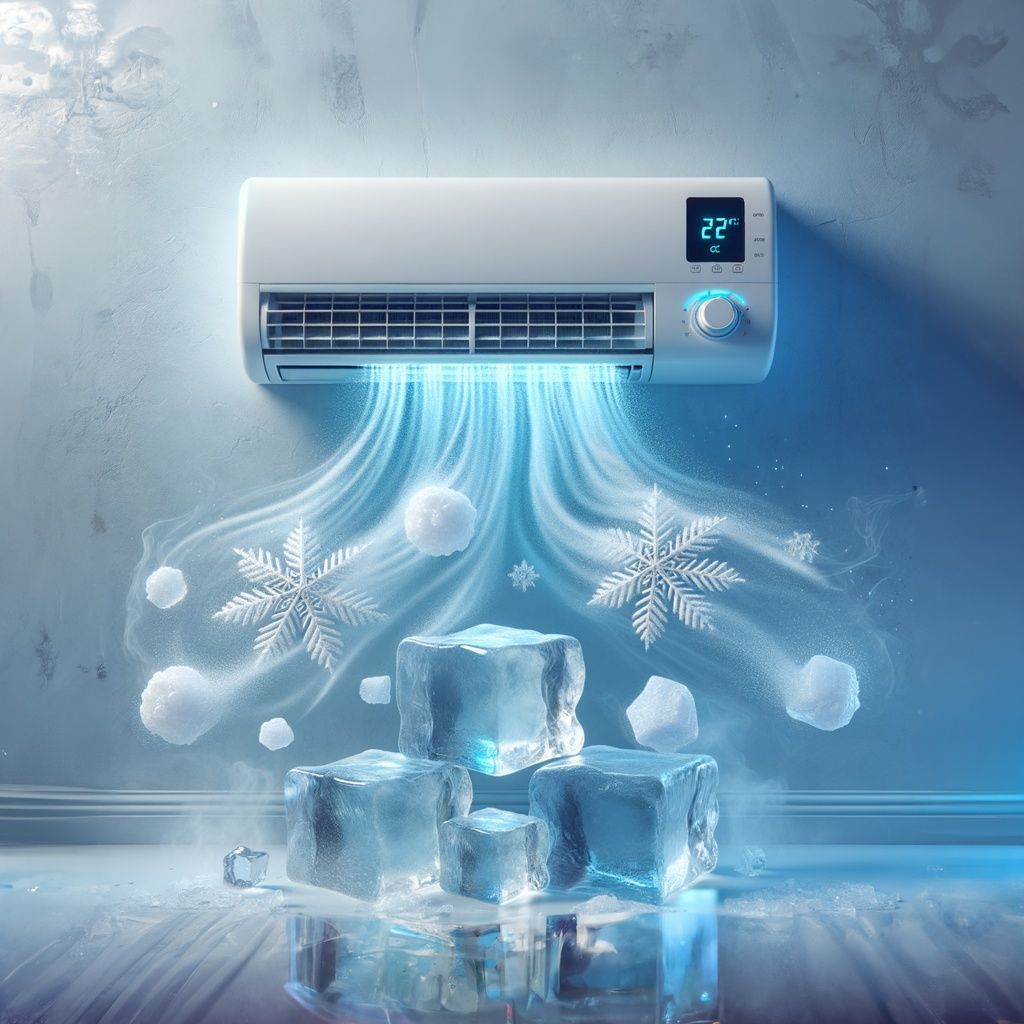
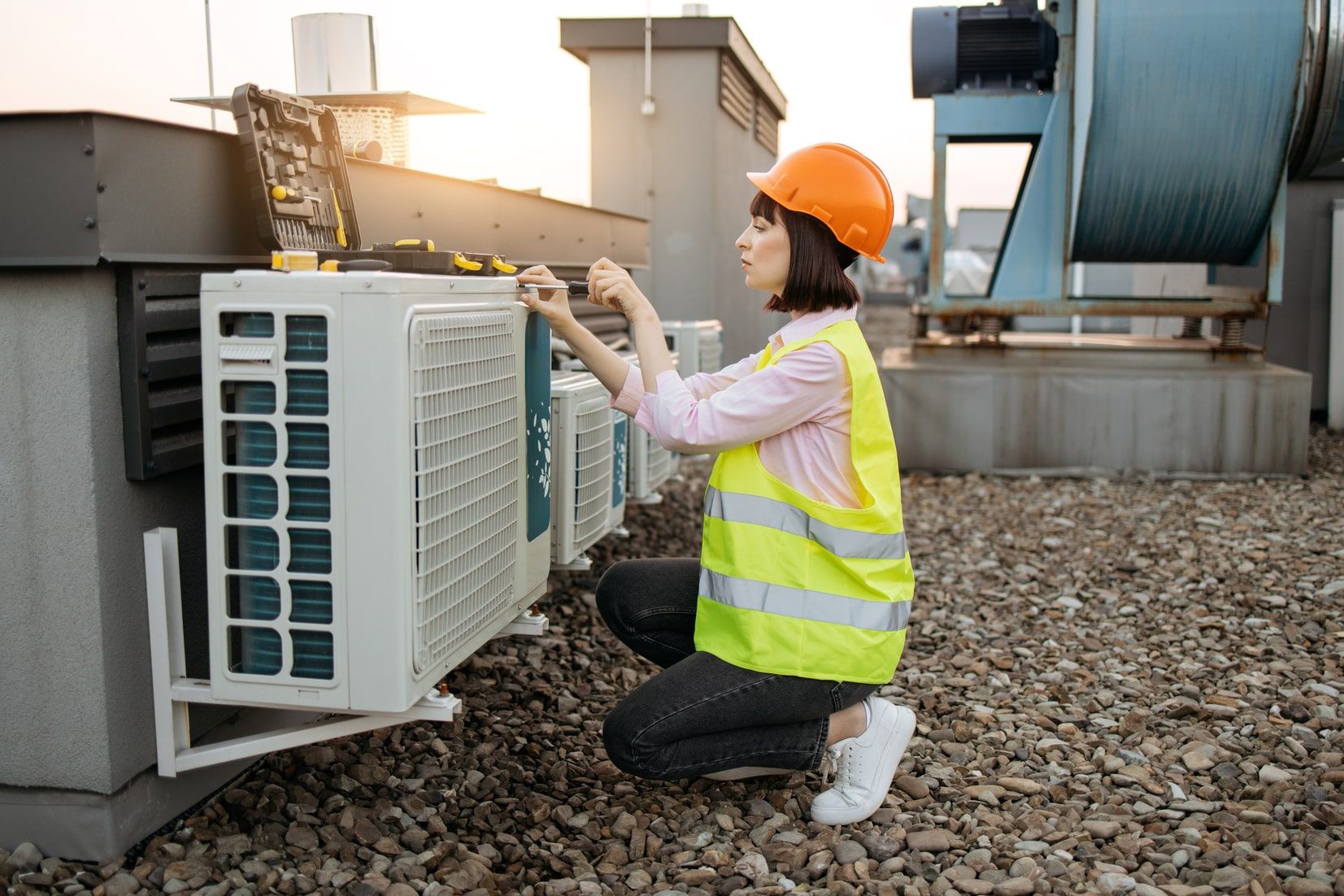
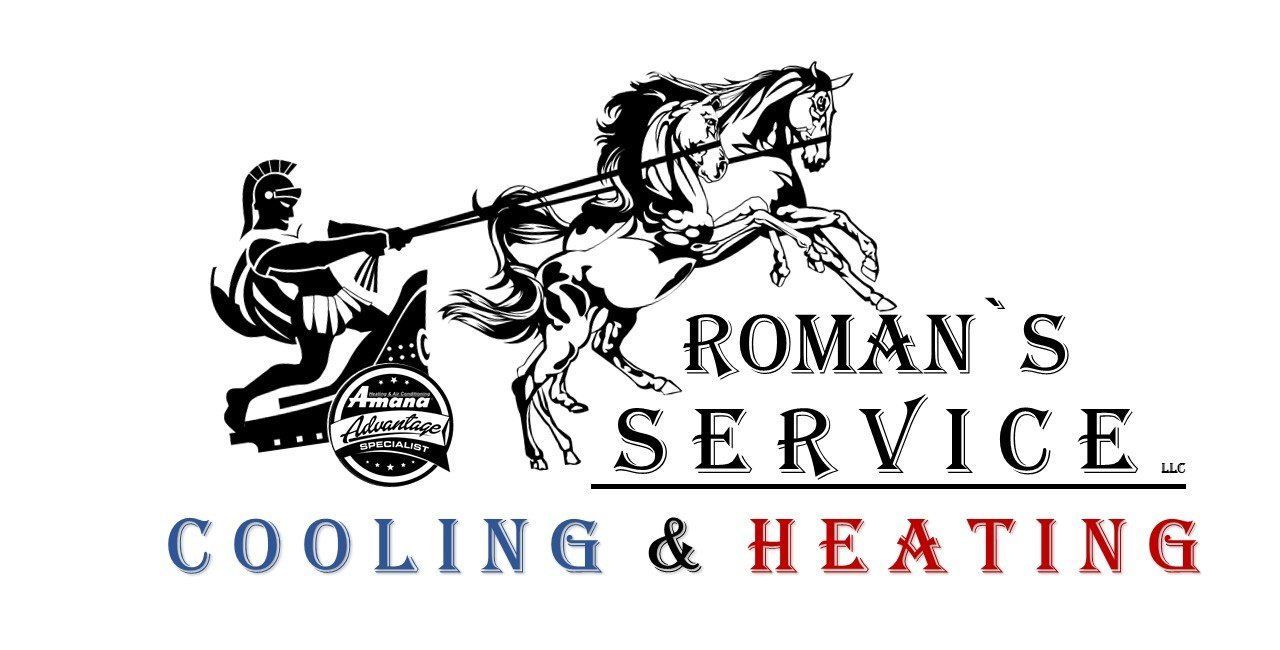
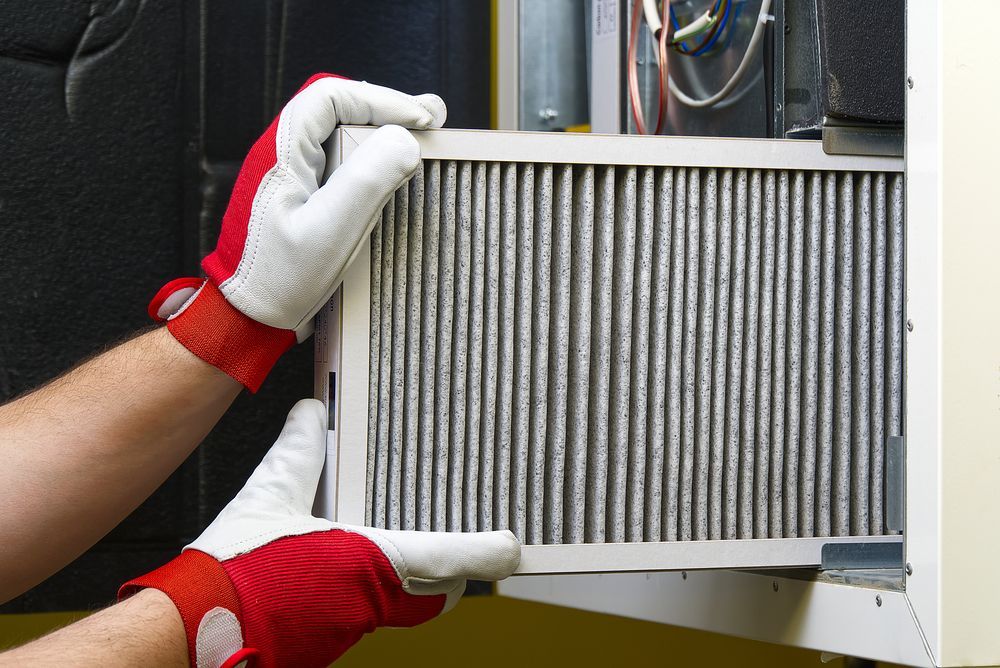
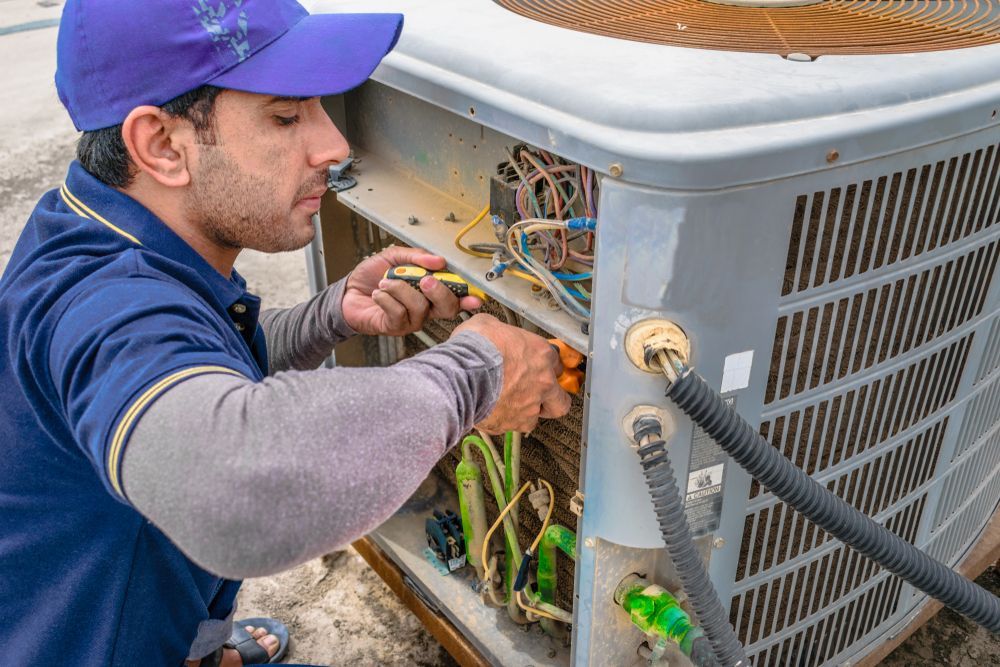
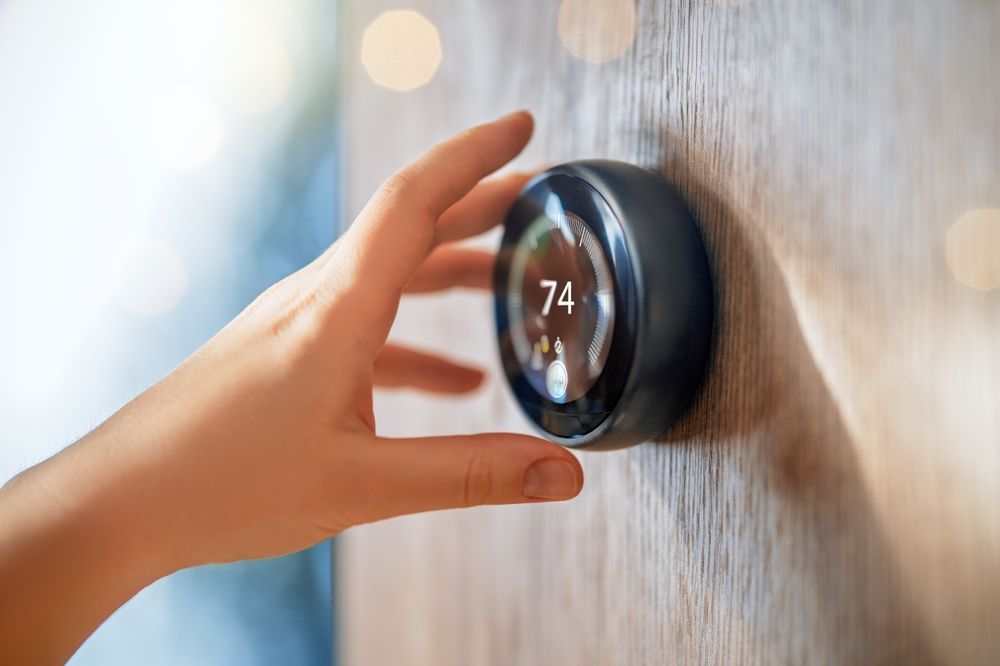
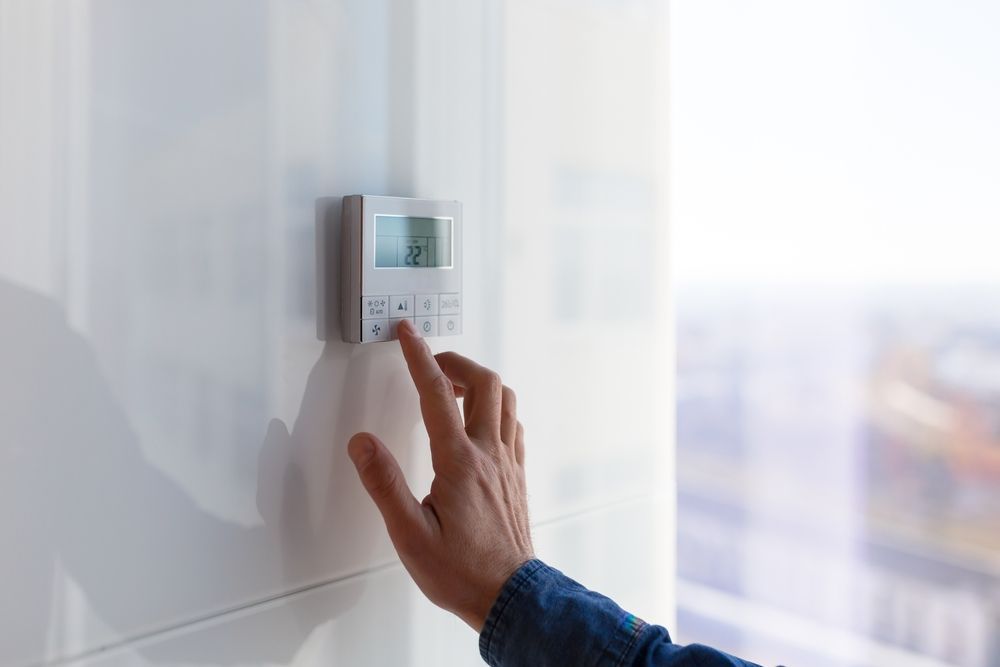
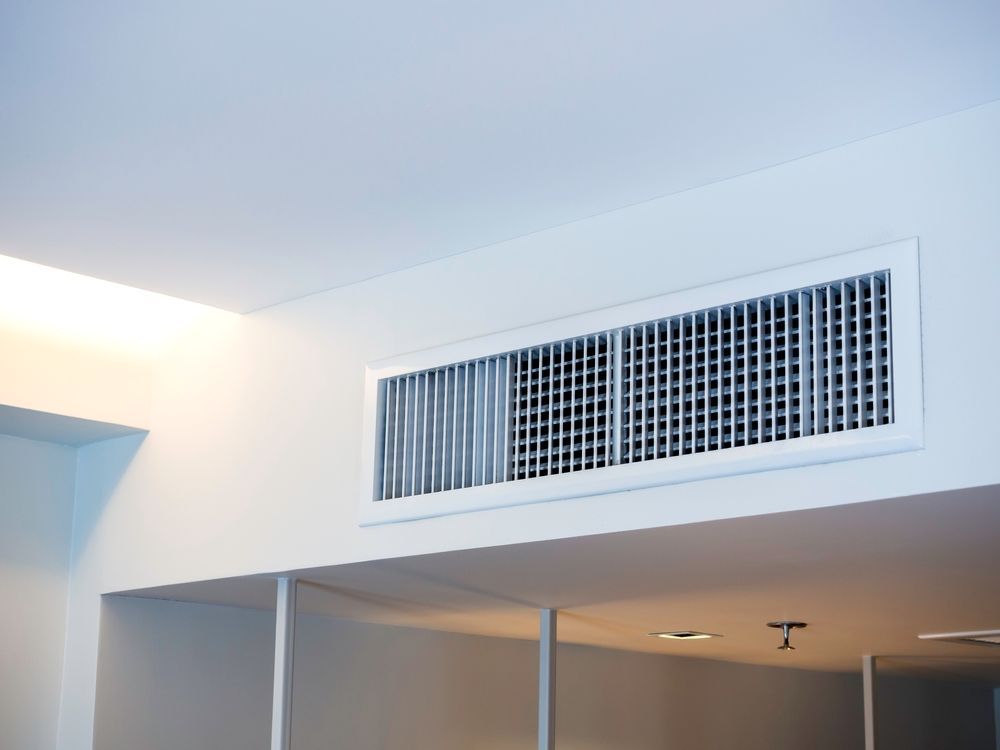
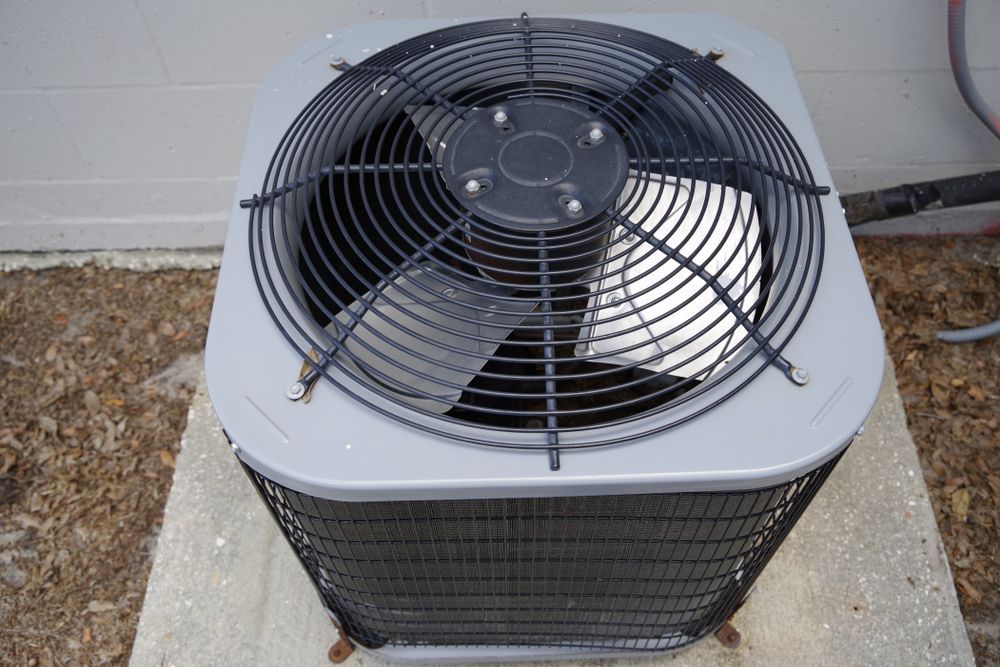
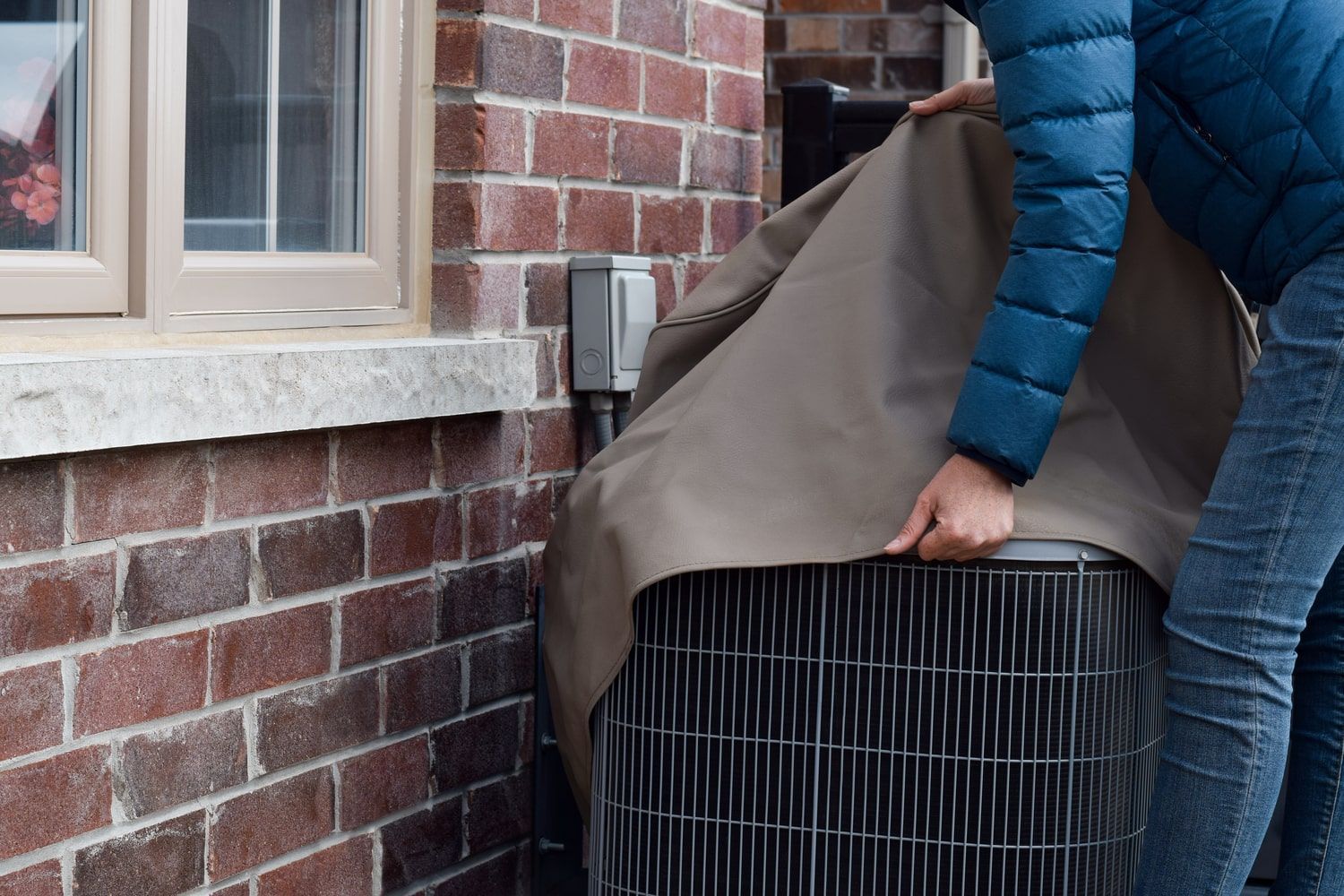
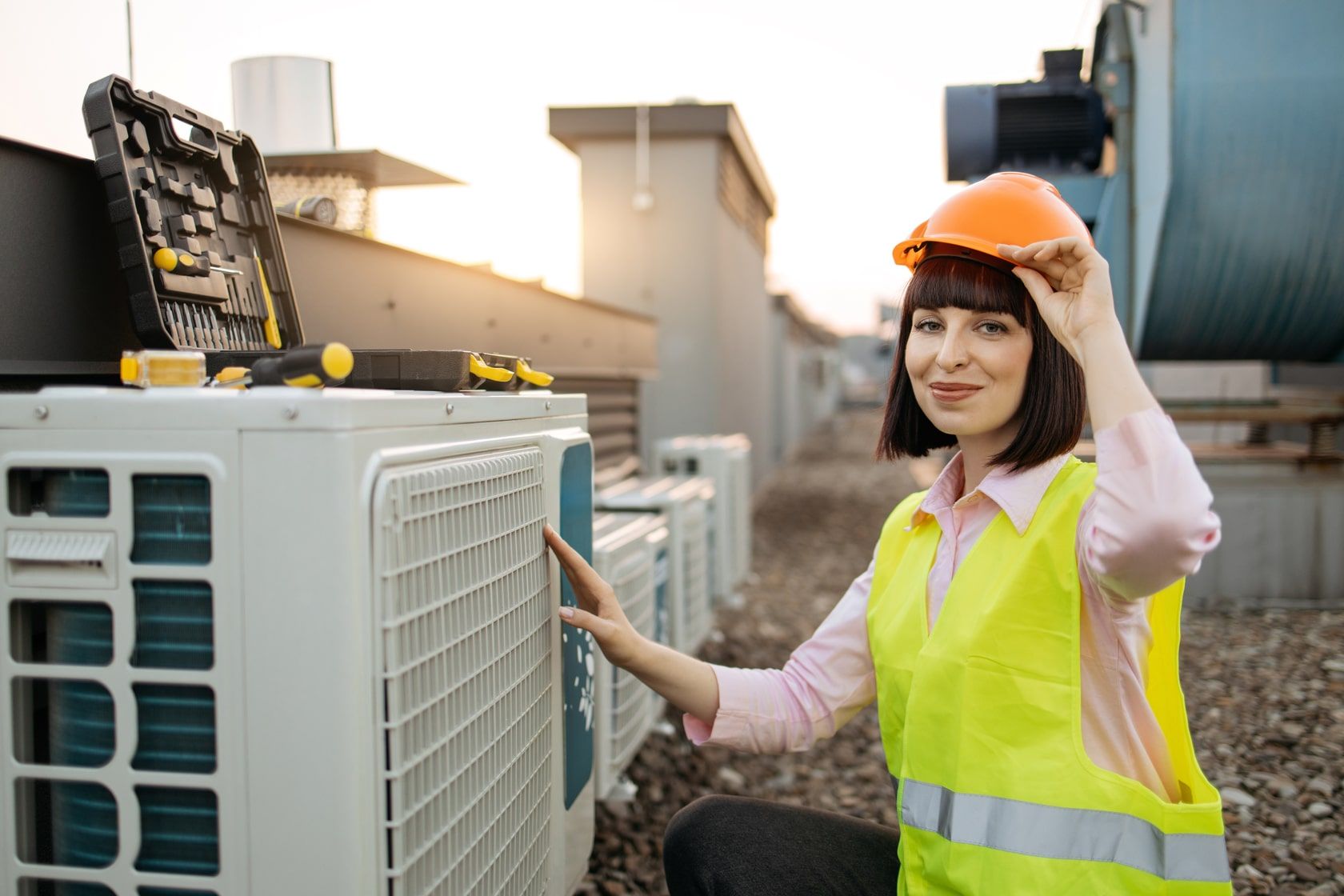
Share On: